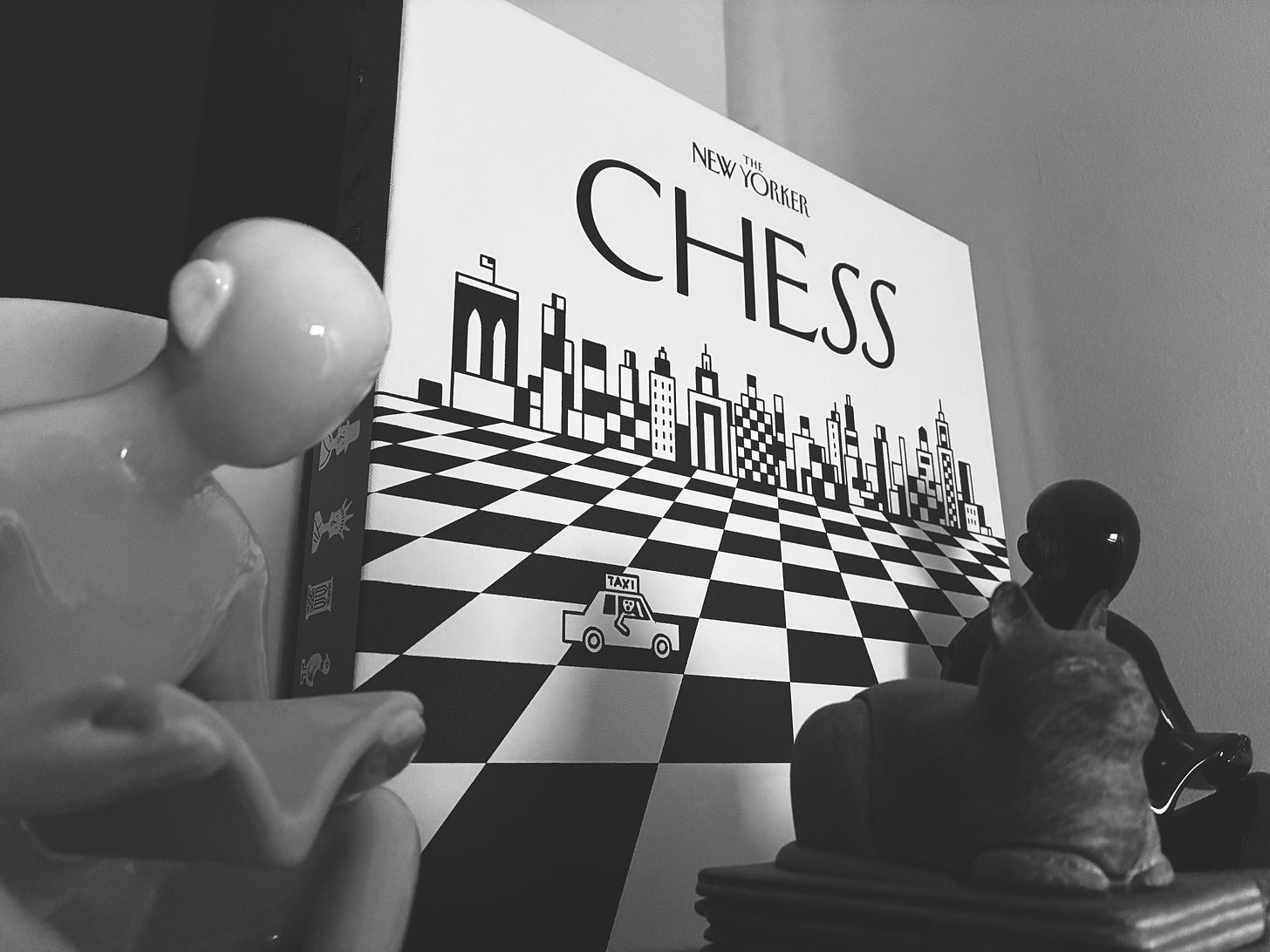photo by Jay Manuel (2025)
I’ve been playing chess since I was about 12. Not competitively, not even consistently, but always with a sense that it held something more than the movement of pieces on a board. For years, I played on instinct, without much knowledge of formal strategies or tactics. It wasn’t until 2012 that I began studying the game in earnest: reading books, solving puzzles, learning the rhythms of the Sicilian, the solidity of the Caro-Kann, the unassuming power of a quiet rook lift. I taught myself, slowly. And though I’ve never climbed above a 1325 rating, chess has become something else for me: a practice of attention. Of radical attention.
Chess, at its best, is not a game of speed or dominance. It’s a game of presence. It demands that you look (really look!!!) not only at what’s on the board but at what could be, what might be. Every move asks: what are you attending to? And what are you failing to see?
In a culture that rewards multitasking, speed, and constant stimulation, the practice of deep attention is quietly revolutionary. To sit at the board and consider a position for five, ten, even fifteen minutes, not out of indecision but out of care, is a kind of resistance. It resists the pressure to act immediately. It resists the seduction of certainty. It resists the myth that what matters is always visible at a glance.
I used to play blitz games, but now I prefer longer formats, over the board. I want to feel the time stretch. I want to learn what happens when I slow down. Often, it’s in those moments, when I quiet the chatter of “good moves” and “bad moves,” and instead ask what the position is asking of me, that I make my best decisions. Not always the most clever, but the most thoughtful. And in this way, chess becomes more than a game. It becomes a mirror.
Like meditation or writing or walking alone without music, chess teaches a kind of internal listening. You pay attention to patterns, not just of pieces but of your own mind: the way you rush to attack, the way you panic when your plan falls apart, the way you miss the quiet bishop in the corner threatening everything.
Radical attention is not just about the external world; it’s about noticing the noise within. Chess teaches me to listen to that noise: to note it, name it, and keep going. To hold it lightly.
I don’t play to win anymore, not in the usual sense. I play to learn how to see. I play to practice patience. I play to remember that in a world so relentlessly fast, there is power in slow, careful seeing.
I will never break 1400. But that’s fine. Chess has already given me something more enduring: presence. And that’s good enough.






Beautiful game! One day we should play. I'll show you my special way to tackle the Caro! :)